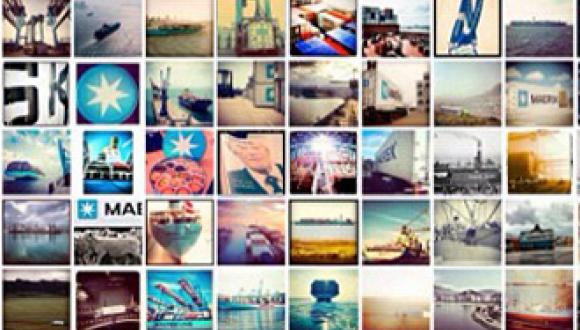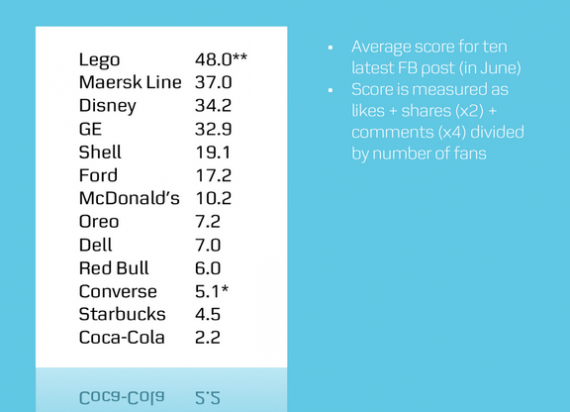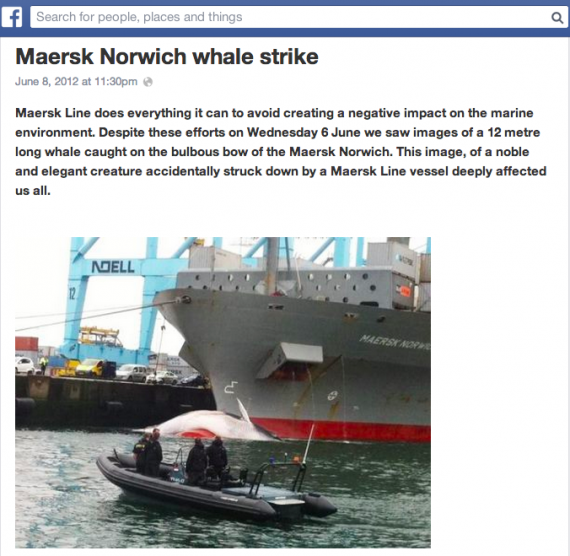Foresights and ideas that expand minds and inspire a change of heart.

Thought Leadership Marketing, the strategy of creating informative and interesting content.

This better engages customers and drives loyalty and quickly moved from a niche term to a 'must have' strategy for both B2B and B2C companies.
In fact, latest studies show that incorporating thought leadership marketinginto their broader strategy is now the top priority for marketing professionals (34.8% of respondents) up from 18.9% in 2012, a 16% increase (CopyPress). According to another study, 91% of B2B marketers now use thought leadership marketing with an average of 12 channels (blogs, videos, mobile content, apps, games etc.) (CMI).
Quite simply, thought leadership marketing works. B2B marketers who successfully adopt content marketing generate a positive return on investment for their organisations. According to HubSpot, 41% of marketers found that inbound generated a positive ROI, whereas only 9% did not (34% did not or could not precisely calculate ROI).
- Marketing with thought leadership content generates 3 times as many leads and costs 62% less than normal marketing methods. (DemandMetric)
- YoY growth for thought leadership marketing leaders is 7.8 times higher than followers in terms of unique site traffic. (Aberdeen Group)
- For organisations that are leaders in producing thought leadership content, yearly growth in marketing's contributions to firm revenue is 6 times higher than followers. (Aberdeen Group)
There's a case to be made that it is even more important for B2B companies to behave like B2C than B2C companies themselves, in terms of engaging and nurturing relationships with their end customers. The importance of producing effective B2B content through the right channels cannot be overstated by the fact that 57% of a typical purchase decision is made before a customer even talks to a supplier (Google & CEB), and the average IT decision maker consumes 5 pieces of content before speaking to a sales rep (IDG).
Despite the clear advantages of becoming thought leaders, a significant portion of B2B companies still face problems with execution. When asked to rate the effectiveness of their organisation's use of content marketing, only 6% of B2B marketers believe their use is very effective (CMI). Looking at the top challenges facing these organisations, the number one issue is producing high quality content, followed by tracking content utilisation metrics and generating sufficient content to meet organisational needs.

(Source: Aberdeen Group 2013)
Maersk B2B Case Study
To better understand how B2B organisations ahead of the curve think and act in terms of producing valued content, let's turn to the example of Maersk Line's use of social content.
In a few short years after starting its social content strategy from the ground up in Q4 2011, Maersk has successfully built up its social media presence as part of its broader content strategy boasting over 1 million + fans on Facebook, 100,000+ followers on Twitter, 25k + followers on Twitter.
Maersk Line boasts a centralised yet localised content strategy which constantly generates content through a broad presence of more than two-dozen channels. When Maersk conducted a mini-study to measure their performance against other leading brands in the social sphere, they were found to be the top performing B2B company in terms of social engagement, beating most B2C companies at their own game.

In the majority of surveys on content marketing, the number one priority for marketers is either lead generation, conversion or generating a positive ROI. Organisations who follow this cold and quantifiable approach miss the broader picture and limit long term value creation. When Maersk set out to implement its social-content strategy, its goals were more broadly defined and less focused on the bottom line. According to an interview with McKinsey, Jonathan Wichmann, Maersk's head of social media states that "Our initial goals for social media were to raise brand awareness, increase customer loyalty, improve employee engagement, develop customer insights, and control news flow. It was the "softer" side of things." Although there's no doubt that metrics should be incorporated, metrics should be used to measure progress rather than as the end goal.

Although articles, white papers, and case studies are all valuable tools for B2B marketers, B2B companies should not forget to use B2C dominated platforms to connect with a range of different stakeholders. Maersk uses just about every channel avaliable as part of a cohesive strategy to produce a range of differentiated and innovative content - from time-lapse videos, to thought-provoking branded journalism, to hip photos of Maersk liners on Instagram.

There are a number of examples of Maersk Line going beyond what was required to give timely, detailed and transparent communication on incidents involving its shipping containers throughout a number of channels. When Maersk was involved in a tragic incident where one of its liners struck a whale, the company provided timely reporting through a number of social media channels, being open and transparent with the public. No matter the brevity of the situation, Maersk utilises every opportunity to tell compelling stories in an effort to connect with the hearts and minds of its audience.

Given that as much as 15-20% of Maersk's Facebook followers are also customers, providing useful information targeted to customers through social channels can be a great opportunity to generate leads. Maersk generated 150 leads from a campaign on Facebook through a detailed case study on how its shipping containers navigate the frozen Baltic Sea, linked to its anti-freeze products and services. Interested readers contained a number of potential customers to be converted into sales for the company.

In addition to having a centralised global Facebook and Twitter page, Maersk encourages local accounts provided they add business value by providing useful localised content. As part of their efforts to maintain a consistent voice and presence, the company uses a single dedicated platform to source photos, news items, updates etc. which comes from their people, rather than solely from management. For example, Maersk's Twitter account is managed by a diverse group of employees which includes a captain, Maersk graduate program students, a chief commercial officer, and the head of anti-piracy.
The story of Maersk's success is just one of many examples of excellence in thought leadership marketing in the B2B sphere. Forward-thinking companies like Maersk have taken to social media, among other channels to generate content that is engaging, highly emotive, inspiring, thought provoking and increasingly catered to an wider audience than just customers, the traditional B2B focus. In the majority of Maersk's content, the audience is hard-pressed to find even remote evidence that the aim is to sell products or services. Given that customers are increasingly placing a higher emphasis on 'personal value' in their buying decisions, generating the right content in the right places measured in terms of engagement rather than 'clicks' or 'conversions' will be a key differientiator between leaders and laggards in the future.

Header Text
Lorem ipsum dolor sit amet, consectetur adipiscing elit, sed do eiusmod tempor incididunt ut labore et dolore magna aliqua. Ut enim ad minim veniam, quis nostrud exercitation ullamco laboris nisi ut aliquip ex ea commodo consequat. Duis aute irure dolor in reprehenderit in voluptate velit esse cillum dolore eu fugiat nulla pariatur.
Lorem ipsum dolor sit amet, consectetur adipiscing elit, sed do eiusmod tempor incididunt ut labore et dolore magna aliqua. Ut enim ad minim veniam, quis nostrud exercitation ullamco laboris nisi ut aliquip ex ea commodo consequat. Duis aute irure dolor in reprehenderit in voluptate velit esse cillum dolore eu fugiat nulla pariatur.
Lorem ipsum dolor sit amet, consectetur adipiscing elit, sed do eiusmod tempor incididunt ut labore et dolore magna aliqua. Ut enim ad minim veniam, quis nostrud exercitation ullamco laboris nisi ut aliquip ex ea commodo consequat. Duis aute irure dolor in reprehenderit in voluptate velit esse cillum dolore eu fugiat nulla pariatur.

Header Text
Lorem ipsum dolor sit amet, consectetur adipiscing elit, sed do eiusmod tempor incididunt ut labore et dolore magna aliqua. Ut enim ad minim veniam, quis nostrud exercitation ullamco laboris nisi ut aliquip ex ea commodo consequat. Duis aute irure dolor in reprehenderit in voluptate velit esse cillum dolore eu fugiat nulla pariatur.
Lorem ipsum dolor sit amet, consectetur adipiscing elit, sed do eiusmod tempor incididunt ut labore et dolore magna aliqua. Ut enim ad minim veniam, quis nostrud exercitation ullamco laboris nisi ut aliquip ex ea commodo consequat. Duis aute irure dolor in reprehenderit in voluptate velit esse cillum dolore eu fugiat nulla pariatur.
Lorem ipsum dolor sit amet, consectetur adipiscing elit, sed do eiusmod tempor incididunt ut labore et dolore magna aliqua. Ut enim ad minim veniam, quis nostrud exercitation ullamco laboris nisi ut aliquip ex ea commodo consequat. Duis aute irure dolor in reprehenderit in voluptate velit esse cillum dolore eu fugiat nulla pariatur.

Header Text
Lorem ipsum dolor sit amet, consectetur adipiscing elit, sed do eiusmod tempor incididunt ut labore et dolore magna aliqua. Ut enim ad minim veniam, quis nostrud exercitation ullamco laboris nisi ut aliquip ex ea commodo consequat. Duis aute irure dolor in reprehenderit in voluptate velit esse cillum dolore eu fugiat nulla pariatur.
Lorem ipsum dolor sit amet, consectetur adipiscing elit, sed do eiusmod tempor incididunt ut labore et dolore magna aliqua. Ut enim ad minim veniam, quis nostrud exercitation ullamco laboris nisi ut aliquip ex ea commodo consequat. Duis aute irure dolor in reprehenderit in voluptate velit esse cillum dolore eu fugiat nulla pariatur.
Lorem ipsum dolor sit amet, consectetur adipiscing elit, sed do eiusmod tempor incididunt ut labore et dolore magna aliqua. Ut enim ad minim veniam, quis nostrud exercitation ullamco laboris nisi ut aliquip ex ea commodo consequat. Duis aute irure dolor in reprehenderit in voluptate velit esse cillum dolore eu fugiat nulla pariatur.
& STAY UP TO DATE WITH FORESIGHTS AND TREND REPORTS!
WE WILL EQUIP YOU WITH THE VIDEOS AND MATERIALS YOU NEED TO SUCCESSFULLY PITCH ASN.
0 Comment